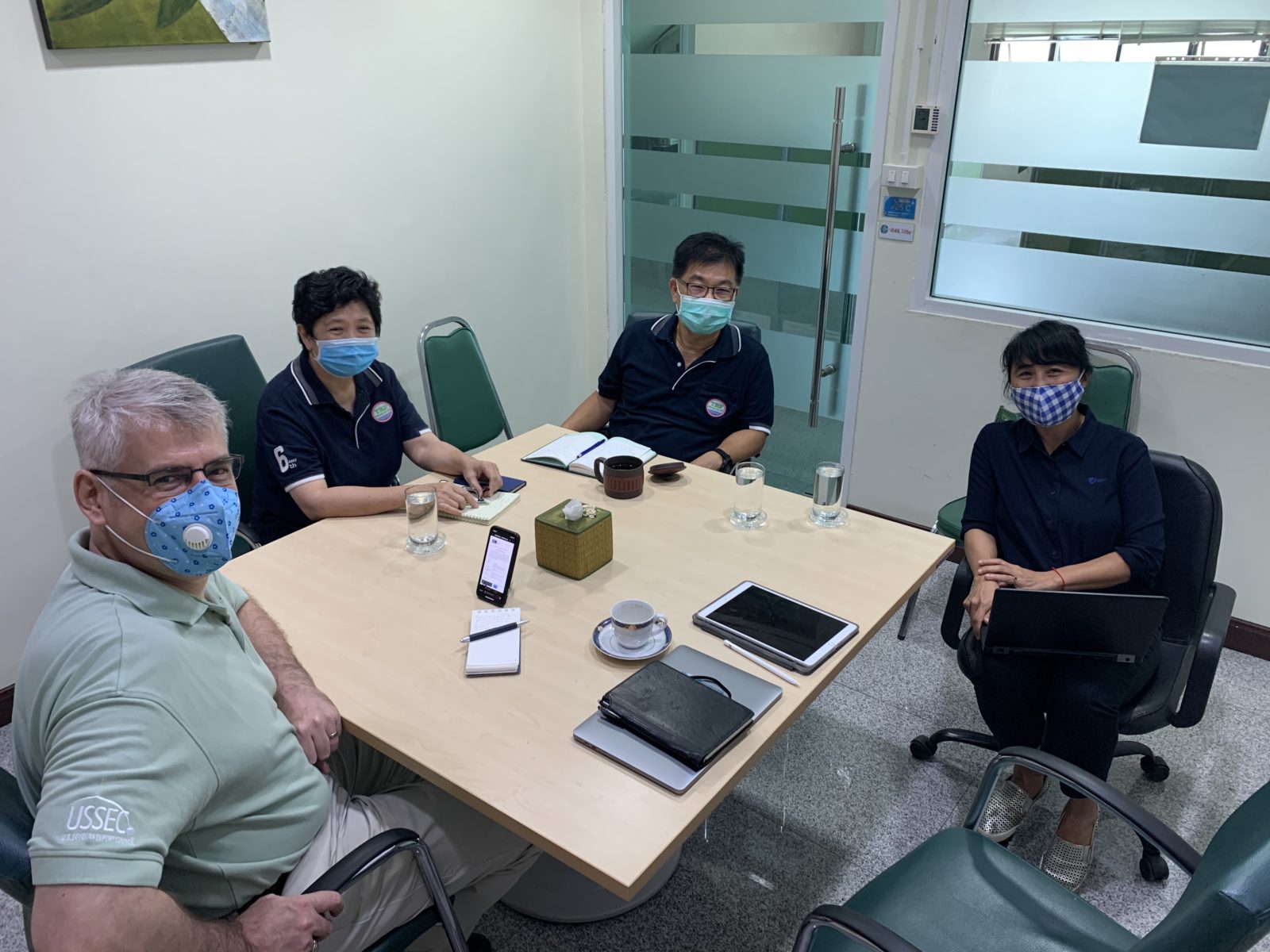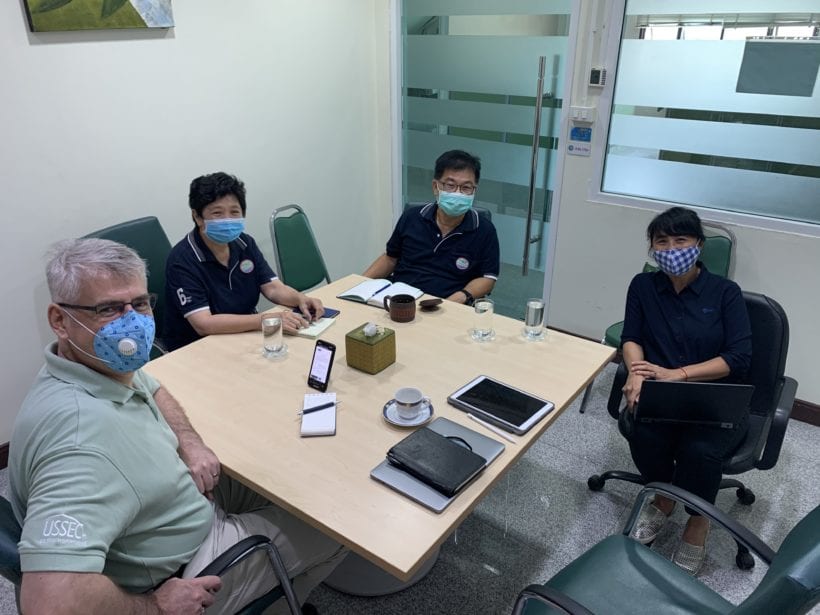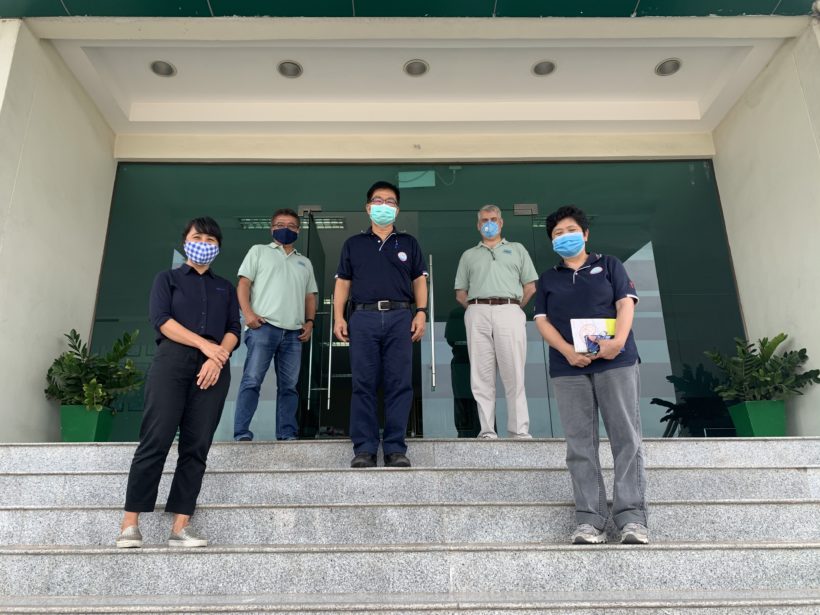Thai Aquaculture Industry, USSEC Team Up to Address Soymeal Inclusion Concerns in Shrimp
- Category:
- Aquaculture
- General News

An influential Thai expert has been inaccurately telling shrimp farmers in that country that high levels of soybean meal in feeds cause White Feces Disease in shrimp. The U.S. soy industry has already funded many years of research showing the safety and utility of soy in shrimp feeds. Therefore, USSEC is working to conduct a trial to once again demonstrate that different levels of soybean meal used in shrimp formulation will not cause White Feces Disease in Pacific Whiteleg shrimp. This is critical to ensure that incorrect messages about soy do not become entrenched in the aquaculture industry or spread further.
USSEC plans to conduct two separate trials, a lab trial and a pond trial, to address the Thai shrimp industry’s concerns. While many years of prior research by the U.S. soy industry has not found any concerns with White Feces Disease, sometimes research needs to be repeated to convince industry in specific locations. (This is also why USSEC conducts demonstration projects in different nations using the same technology, because it is often needed to convince local industry of something that has already been shown to work elsewhere.)
USSEC is cooperating with an influential Thai company, TRF Feedmill and a commercial industry cooperator, DSM, to conduct these trials.
Dr. Niti Chuchird from Faculty of Fishery, Kasetsart University will conduct a lab trial using vannamei shrimp postlarvae stage PL12 (shrimp post larvae, 12 days old) fed with 0%, 15%, and 30% of soybean meal in the diet formulation. The lab trial will take about 60 days to complete.
The trials will also examine White Feces Disease-related parameters in shrimp fed with various soybean meal levels in feeds in ponds by using hapa (net) conditions. This pond trial is estimated to take 90 days to complete.
USSEC met with the key cooperators in May 2020 to finalize, discuss, and plan for this trial to be complete within the FY20 season. TRF Feedmill will take a major role in producing the feed for this trial, using a formula approach detailed in the trial protocols.
This trial is set to start in July 2020 and will be an important step to comprehensively address shrimp farmers’ recent concerns. The Thai shrimp industry, and particularly feedmills, are very much looking forward to having local trial results that they can use to address these apprehensions.
“TRF Feedmill is willing to conduct this trial for the benefit of shrimp farmers,” says Dr. Preecha Ektumasuit, Managing Director, TRF Feedmill Co., Ltd. “We believe that soybean meal, which has been used in feed ingredients for a long time, does not causes White Feces Disease.”
The soy used in these trials will be U.S. origin, which may also directly benefit U.S. Soy, as the results could state that “U.S. soybean meal doesn’t cause White Feces Disease.”
TRF Feedmill is one of the feedmills operated by Dr. Preecha Ekatumasuit, who is the managing director and has worked in the Thai shrimp industry for more than 30 years.

